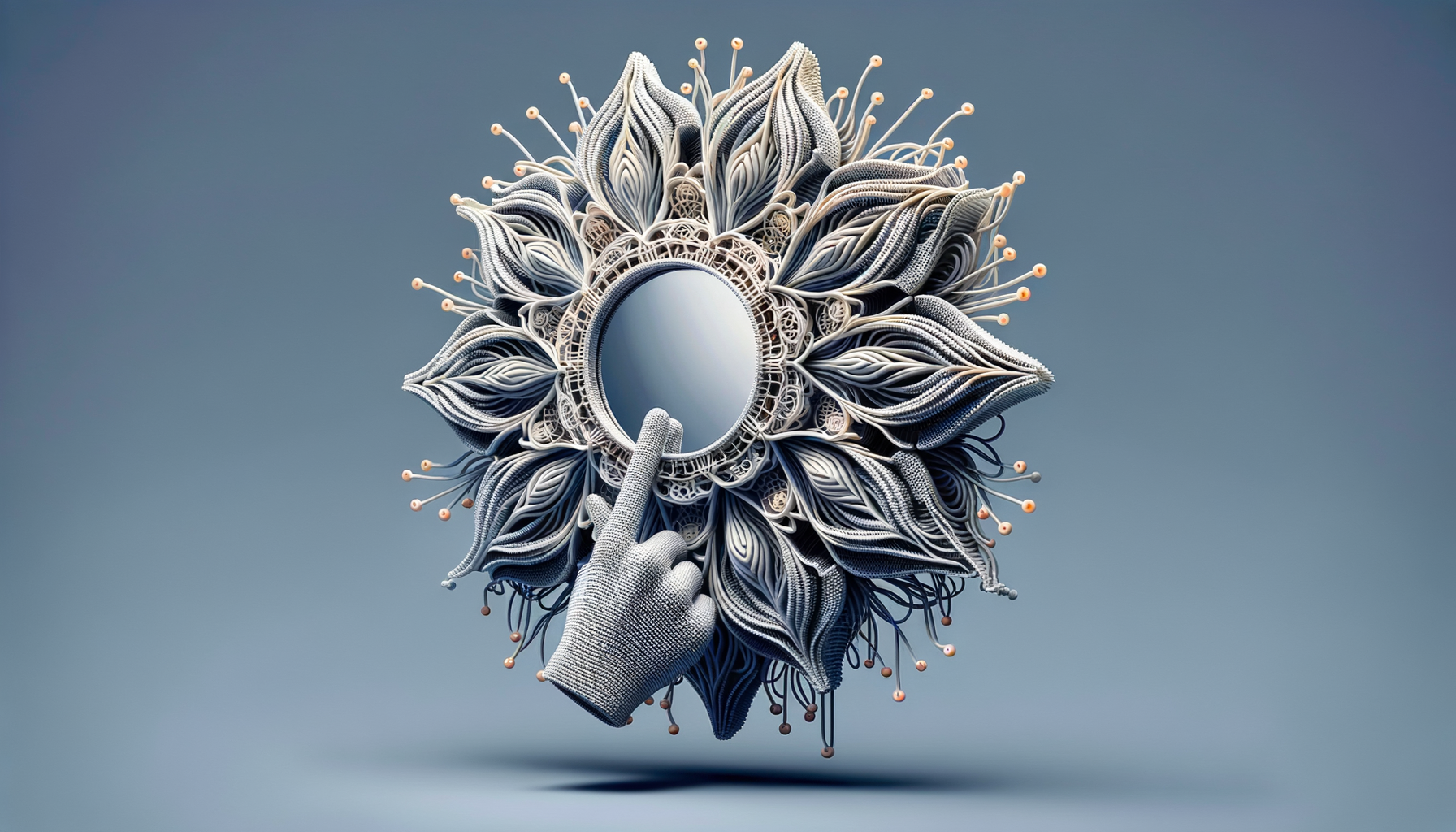From Impostor to Expert: How I Stopped Second-Guessing Myself in Life and Love
The Mirror Never Lies—Except When It Does
Let’s start here: I grew up surrounded by brilliance. My mom could negotiate a deal with the same finesse she used to critique my middle school poetry attempts. My dad could pivot from a deep philosophical conversation to fixing a broken faucet without breaking a sweat. Naturally, I inherited the family trait of…feeling like a total fraud.
“Impostor syndrome,” they call it. That nasty little voice inside your head whispering, You’re not the real deal. It doesn’t matter if you’re giving a boardroom presentation, trying to decode the unwritten etiquette of first dates, or haggling over dim sum in Hong Kong (fact: I once accidentally negotiated myself into paying double). The doubt has a way of showing up, gnawing away softly like an unwanted guest who brought their own snacks.
But here’s where I’m calling out the lie: the mirror doesn’t always reflect the truth. The things people see in you—curiosity, intelligence, charm, potential—are often much harder to spot when you’re staring at your own reflection. Especially when you’ve forgotten how to look.
Let me share how I learned to quiet the inner fraud police in everything from relationships to career moves. Spoiler: there’s hope in the chaos, and maybe a few laughs along the way.
Act One: The Date Who Knew Too Little (Me)
Flashback to my mid-20s. I’d just completed my comparative literature degree at Yale and was stepping cautiously into my first “adult” relationships. I remember sitting across from a girl at a speakeasy-style bar in Crown Heights, nursing an overpriced gin concoction and trying desperately to sound sophisticated.
She was quoting Murakami. I countered with Baldwin. She threw out a deep philosophical question. I panicked and muttered something about…Kafka’s The Metamorphosis, because bugs are always a safe choice?
When I got home that night, I replayed the conversation, convinced she’d seen right through me. That was embarrassing, I thought. Why would anyone want to date me when they could have someone smarter, funnier, more charismatic?
Except she texted me the next day: That was fun! Let’s hang out again?
What I learned was this: You don’t have to be a human encyclopedia or a walking TED Talk for someone to find you interesting. Passion—even if it’s about niche things, like early 90s hip-hop or why salted butter is superior—wins over pretense every time. Trying to “fake it” is painful and, frankly, exhausting. No one wants to date a museum exhibit of polished trivia; they want a person.
Lessons in Owning Your Expertise
So, how do you stop feeling like an impostor and start believing in yourself—whether you’re navigating relationships, career leaps, or life itself? Here are a few things that worked for me, curated from actual trial and (plenty of) error:
-
Recognize the Gap Between Feeling and Fact
Impostor syndrome thrives in the gap between your perception and reality. Just because you feel unqualified—unworthy, out of place—that doesn’t mean you are. Think of your accomplishments (big and small) as receipts. Look at them when the doubt creeps in. -
Surround Yourself With Reality-Checkers
My best friend, Mateo, has no patience for my “woe is me” moments. Anytime I spiral into self-doubt, he’s the first to remind me of the things I’ve worked hard to achieve—or flat out laugh me into perspective. (“You survived Berlin nightlife. You can survive pitching a new article, Julian.”) Find your Mateos. Everyone needs them. -
Stop Calling It Luck
If I had a dollar for every time I downplayed my success by dismissing it as chance, I could buy—well, another overpriced gin cocktail. Your hard work, your unique perspective, your empathy, and your ideas are not accidents. They’re earned. Start owning that. -
Comfort Zones Are Overrated
True story: I was once invited to host a literary panel in front of an audience of 300. I wanted to say no, crawl back under my Brooklyn comfort blanket, and pretend I never got the email. But instead, I said yes. Did I nervously sweat through my carefully curated blazer? Yes. Did it end up being one of the most fulfilling moments of my literary career? A thousand times, yes. Growth happens where certainty ends.
Dating Is Just Another Form of Impostor Syndrome
Here’s the thing: when you’re navigating relationships, especially in those early, flirty-but-terrifying stages, it’s all too easy to question your “qualifications.” Am I attractive enough? Am I interesting enough? Am I…enough?
The reality: No one’s handing out diplomas for “Qualified Life Partner” status. We’re all just winging it—some of us with jazz hands, some with tired memes, and some with emotional armor thicker than a good New York bagel.
But here’s a humbling observation from my relationship victories (and more than a few blunders): Confidence isn’t about having all the answers. It’s about showing up as yourself, mismatched socks and all. The right people will embrace the real you—not whatever hologram version you think they want.
Crash Course: Steps to Get There Faster
Let’s inject a little practicality, Brooklyn style. Here’s a crash course for stepping into yourself—fully equipped for success in love, work, and that random trivia night where your knowledge of 80s sitcoms finally pays off:
- Get Comfortable With Flaws. You know that mole on your chin you’re weirdly self-conscious about? Someone out there finds it adorable. Stop obsessing; start owning.
- Stay Curious, But Be Honest. Can you be yourself and still enjoy learning from someone else? Absolutely. Relationships are about growing together…not auditioning for Mensa.
- Fake It (Wisely). There’s a fine line between ambition and overcompensating. Channel your “fake confidence” into actions, not opinions. (Translation: Show up; don’t act like you know it all.)
- Laugh At Your Mistakes. Literally. I once set off a restaurant fire alarm trying to impress a date by flambéing something at a tableside burner. We both ugly-laughed for 10 minutes. She still called me for a second date.
When the Doubt Creeps Back
Does the impostor voice ever disappear? Honestly? Not entirely. Even now, on my best days, it sneaks in—quietly pointing out the infinite ways I could “do better,” be smarter, or hustle harder. But I’ve learned to talk back: No one’s watching that closely, Julian. You’re doing fine.
The antidote to doubt isn’t perfection—it’s persistence. Keep showing up for yourself, embracing every flaw, every awkward laugh, every earnest attempt. When you do, you might just surprise yourself with how much of an “expert” you’ve quietly become.
Your Growing Expertise Starts Now
Take that first small, bold step. Whether it’s speaking up at a work meeting, being vulnerable on a date, or finally pulling the trigger on that side hustle you’ve been dreaming about—stop waiting for permission. You’re more qualified than you think to live the life you want.
And if that pesky mirror says otherwise? Remind yourself: The glass doesn’t always show the whole picture. You’re more than what you see.




















